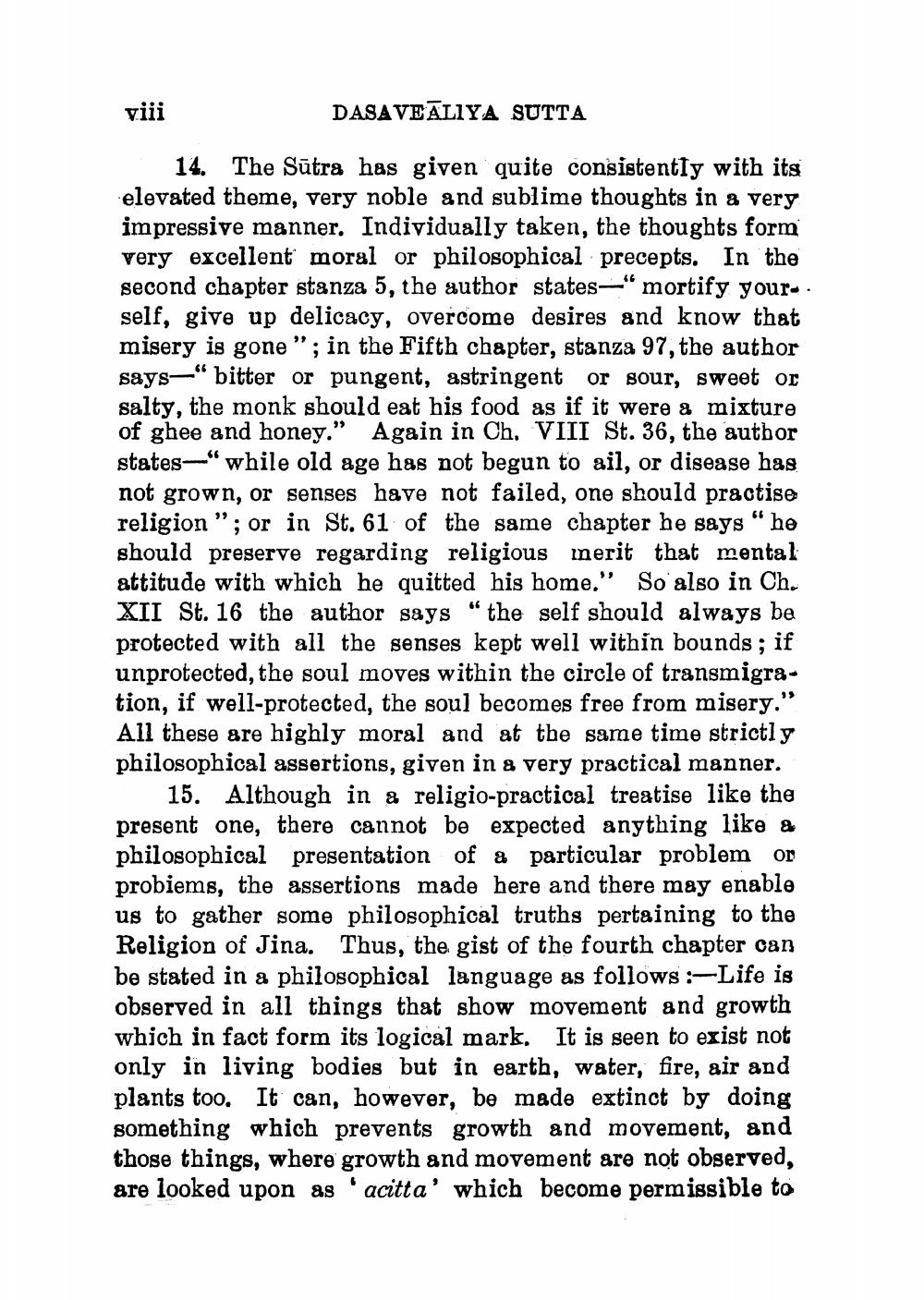________________
viii
DASAVEĀLIYA SUTTA
14. The Sūtra has given quite consistently with its elevated theme, very noble and sublime thoughts in a very impressive manner. Individually taken, the thoughts form very excellent moral or philosophical precepts. In the second chapter stanza 5, the author states-"mortify your.. self, give up delicacy, overcome desires and know that misery is gone"; in the Fifth chapter, stanza 97, the author says—"bitter or pungent, astringent or sour, sweet or salty, the monk should eat his food as if it were & mixture of ghee and honey." Again in Ch. VIII St. 36, the author states—"while old age has not begun to ail, or disease has not grown, or senses have not failed, one should practise religion”; or in St. 61 of the same chapter he says "he should preserve regarding religious inerit that mental attitude with which he quitted his home." So also in Ch. XII St. 16 the author says "the self should always be protected with all the senses kept well within bounds; if unprotected, the soul moves within the circle of transmigration, if well-protected, the soul becomes free from misery." All these are highly moral and at the same time strictly philosophical assertions, given in a very practical manner.
15. Although in a religio-practical treatise like the present one, there cannot be expected anything like & philosophical presentation of a particular problem op probiems, the assertions made here and there may enable us to gather some philosophical truths pertaining to the Religion of Jina. Thus, the gist of the fourth chapter can be stated in a philosophical language as follows :-Life is observed in all things that show movement and growth which in fact form its logical mark. It is seen to exist not only in living bodies but in earth, water, fire, air and plants too. It can, however, be made extinct by doing something which prevents growth and movement, and those things, where growth and movement are not observed, are looked upon as 'acitta' which become permissible to




